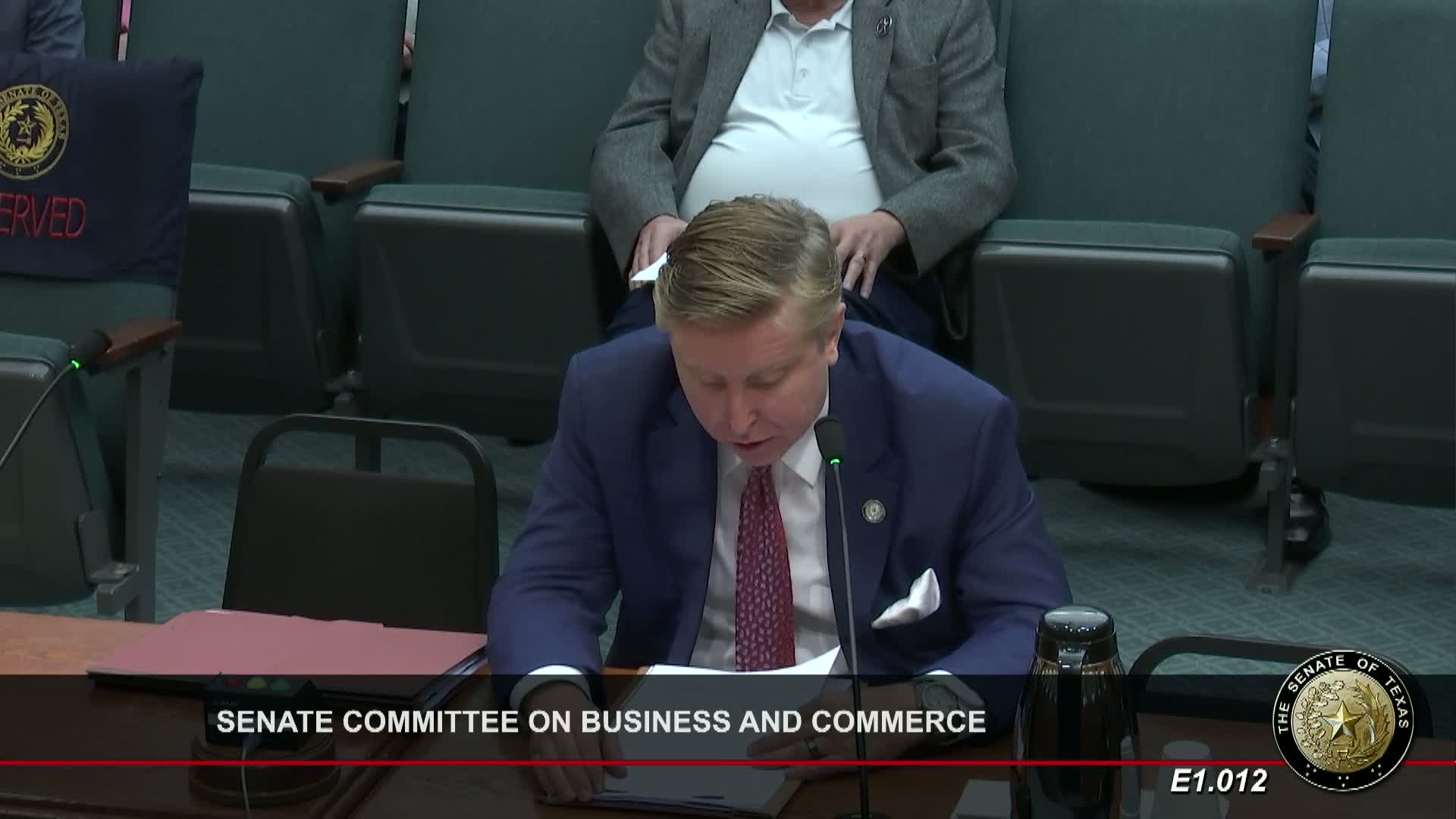Committee hears extensive testimony on regulating cryptocurrency kiosks; substitute would license operators, require holds and ID checks
Get AI-powered insights, summaries, and transcripts
Subscribe
Summary
Senate Bill 17 05 (committee substitute) would license virtual-currency kiosks, require ID verification and a temporary hold on new-customer funds, cap fees and set transaction limits; law enforcement and victims urged action during a lengthy hearing.
Senators heard extensive invited testimony and public comment on the committee substitute to Senate Bill 17 05, which would regulate virtual-currency kiosks (commonly called cryptocurrency ATMs) by establishing licensing, transaction limits, identity verification and other consumer-protection measures.
Sponsor Sen. Parker described the substitute’s core elements: licensing and registration of kiosk operators; mandatory reporting and fraud-prevention measures; customer disclosures and acknowledgment; a $3,000-per-day transaction limit and a 12 percent fee cap in the substitute as presented to the committee; a 72-hour hold on new-customer transactions; ID swipe and photo requirements; and enforcement handled by the Department of Banking with license sanctions for violations. The substitute extends the effective date to Jan. 1, 2026, to give regulators time to implement the regime.
Law-enforcement witnesses said the measures were needed. Detective Jeff Prater of the Colleyville Police Department described frequent crypto-ATM fraud investigations and testified the 72-hour hold “is a game changer,” explaining that holds have allowed some recoveries. He recounted a local case in which an elderly victim lost $17,000 in a crypto-ATM scam. Marcus Adams and Adam Colby (Texas Department of Banking representatives) testified that the agency has the expertise to oversee the proposed program and described implementation options including registration checks, complaint-driven enforcement and potential on-site examinations.
Cyrus Reed of the Sierra Club and other advocates argued the bill would protect consumers and that the kiosks were being used to target older adults. Industry witnesses — including representatives from CoinFlip and Bitcoin Depot — said they largely support licensing and anti-fraud measures but opposed hard fee caps and strict transaction limits, saying kiosk operators face high cash-handling and compliance costs. CoinFlip urged care on fee caps and a $3,000 limit, warning caps may reduce operator presence and access. Bitcoin Depot said a 15 percent cap and $1,000 daily limit in other states led it to reduce its footprint in some markets.
The committee heard competing views about the appropriate balance between consumer protection and maintaining legitimate, cash-accessible services. Senators and witnesses discussed enforcement practicalities (how to register and inspect thousands of kiosks), exemptions for banks or regulated financial institutions, and a potential distinction between new and returning customers to reduce fraud risk while limiting burdens on frequent users.
The committee left the bill pending for further consideration.
Ending: Public testimony closed after multiple invited witnesses and industry representatives; the substitute was discussed at length and the measure was left pending for further work by the committee.
